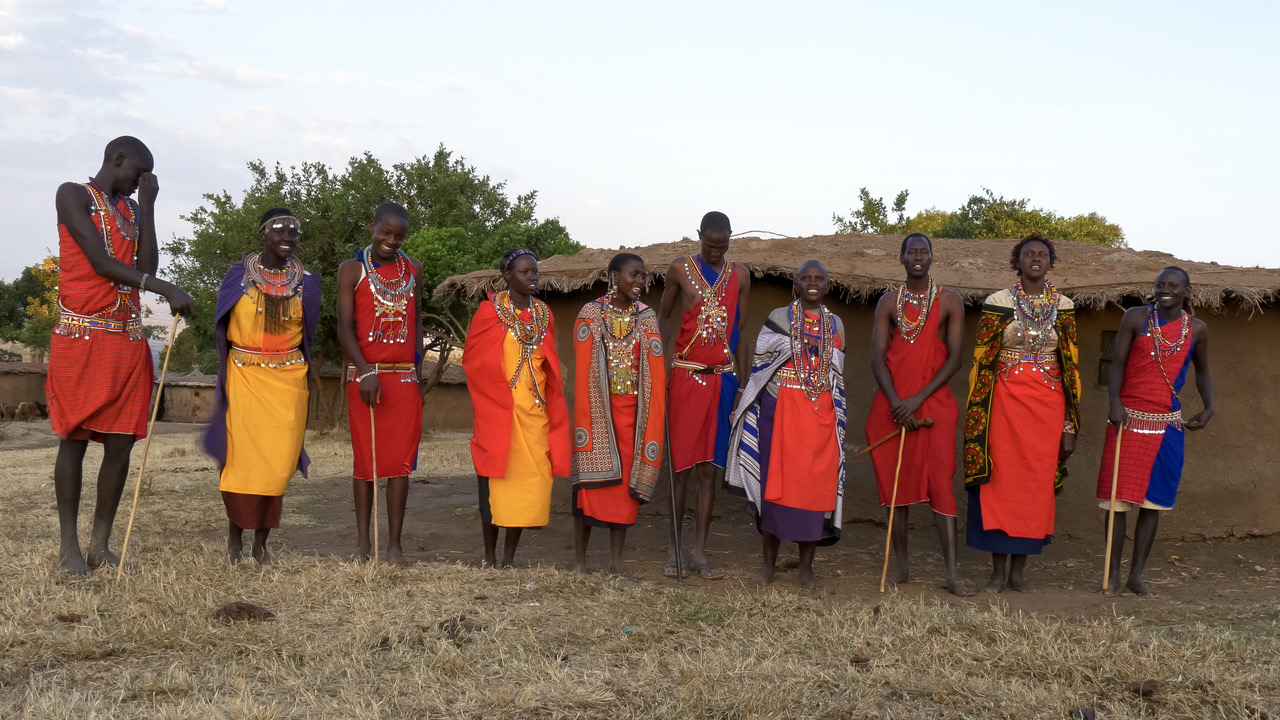Those Who Understand Their Purpose Seldom Leave Their Posts
 The first time I visited Kenya and went with our mission team to Masai Mara in the southern part of the country, I was enthralled. The Masai village we visited consisted of 10 huts, each built with sticks, mud and cattle dung. They are arranged in a tight circle, and the only entrance into the village is through a gate, which is closed and guarded at night. As we walked in and were welcomed by the Masai warriors (dressed in traditional red, many carrying clubs, one wearing a lion’s mane as a headdress), we had to be careful not to step on cattle dung. The Masai gave us their traditional welcome dance, forming a circle and taking turns leaping as high as they could as the others chanted a greeting to the ‘musungu’ visitors. After the welcome, they gave us a tour and explained the life of the Masai.
The first time I visited Kenya and went with our mission team to Masai Mara in the southern part of the country, I was enthralled. The Masai village we visited consisted of 10 huts, each built with sticks, mud and cattle dung. They are arranged in a tight circle, and the only entrance into the village is through a gate, which is closed and guarded at night. As we walked in and were welcomed by the Masai warriors (dressed in traditional red, many carrying clubs, one wearing a lion’s mane as a headdress), we had to be careful not to step on cattle dung. The Masai gave us their traditional welcome dance, forming a circle and taking turns leaping as high as they could as the others chanted a greeting to the ‘musungu’ visitors. After the welcome, they gave us a tour and explained the life of the Masai.
Let me say to any women who are reading that you can thank God every day you were not born Masai. The first thing a Masai woman must do after she gets married is build the house where she and her husband will live. Then her day consists of tending the children, fetching the firewood, cooking the meals, cleaning the house, and making repairs on it when necessary. You’re thinking the same thing I am, aren’t you? What does the man do?
I asked a Masai warrior that question, and he looked at me like I was from another planet. Then he said, very seriously, “We protect the village.” He had a point. This was lion country, and lions love Masai cattle. That’s the other thing Masai men do; they take care of the hundreds of cattle that each village owns. There’s one more thing the Masai men take very seriously: they train young Masai boys to become men.
As we drove through Masai territory I saw little boys, no older than 4 or 5, herding chickens around with a stick. I saw older boys, maybe 9 years old, taking care of a herd of goats. The young teenage boys were taking care of a small herd of cattle. Almost as soon as a little Masai boy is weaned, he is sent to work with Daddy. He learns the skills of his father, learns to hunt and kill predators, learns to protect the village, learns to be a man. A 10 year old Masai boy can throw a club with great accuracy from 30 feet and hit a lion or hyena that has crept into the area. I was told that when a lion sees a Masai walking across the savannah, carrying his spear and his club, the lion turns and goes the other way.
So when I asked how many of the young men grow up and leave the Masai culture and move into the cities, the man I asked looked at me like I had just asked how cows feed their young, like what I said was “udderly” ridiculous. He replied with a scowl, “Almost none leave.” “Why not?” I persisted. He said firmly, “Because they know they are Masai.”
I believe it is universally true: those who understand their purpose and their calling will not abandon their posts. We fathers who follow Christ are given a clear purpose when it comes to our own children. “And you, fathers, do not provoke your children to wrath, but bring them up in the training and admonition of the Lord.” (Ephesians 6:4) Are we standing firm, manning our positions, doing the great work of fatherhood?
May God help us be faithful.
